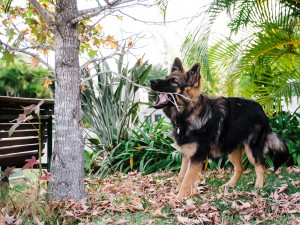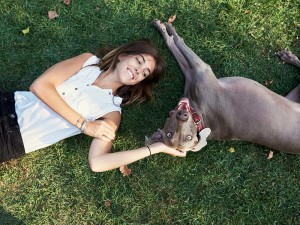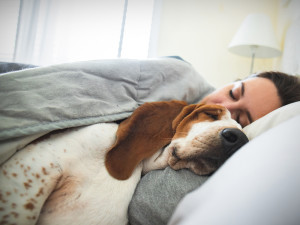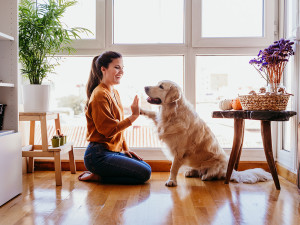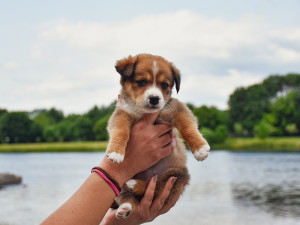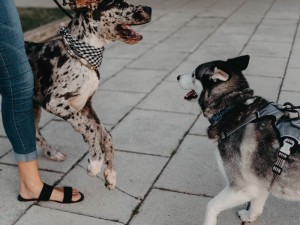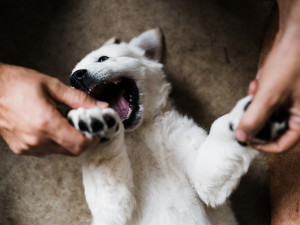Listen Up! Your Puppy Is Trying to Talk to You
How to make sense of all those grunts and whines
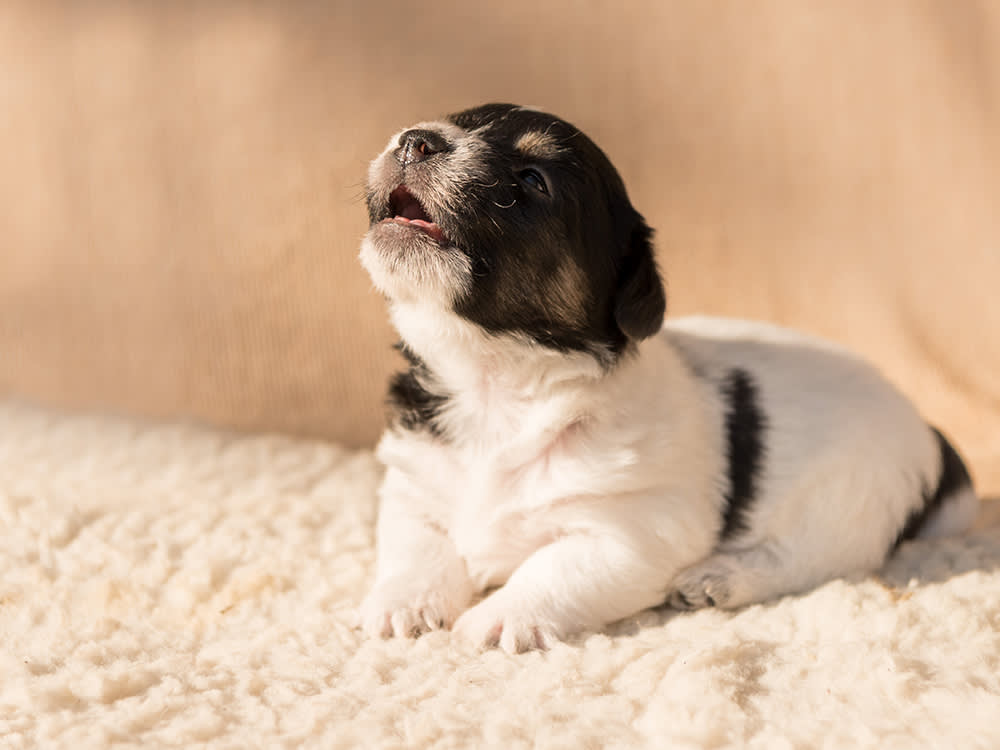
share article
From the moment they pick up their new pup, most pet parents are convinced their dog is trying to tell them something: ”Did that grumble sound just like Mum?” If only they came with a translator. It’s true that dogs are social creatures and communicate their feelings with us through sounds and body languageopens in a new tab. In a puppy’s first weeks, they’ll begin to yelp, whine and grunt before growing and moving into more rich and complex communication methods. Learning puppy speak helps you better care for your puppy – and build on that dialogue as they ageopens in a new tab.
“The better you understand how your puppy experiences their world, the less likely you’ll be to become frustrated or angry and perhaps treat your charge unfairly,“ Nicholas Dodman writes in his book, Puppy’s First Steps: The Whole-Dog Approach to Raising a Happy, Healthy, Well-Behaved Puppyopens in a new tab. “And ultimately, the better and stronger the bond between the two of you will be.”
Get started decoding puppy speak – here are five explanations to help you decipher the meaning behind their body language and vocalisationsopens in a new tab.
Whines
When a puppy whines, that sweet little sound threatens to bring tears to our eyes. One study even found that the whimpers of a puppy feel more sad to pet parents than the sound of a crying baby. Puppies will whine when they’re in need: your puppy may be cold, lonely or hungry. Try to comfort them with attention, food or even a warm towel, and you’ll find they’ll probably stop.
Grunts
Puppies grunt for various reasons, but it’s something they generally do while they’re relaxed and content. You’ll find puppies grunting when eating, sleepingopens in a new tab or being stroked because they enjoy it.
Circles before sleeping
As you get ready for bed, you fluff your pillow and pull back your sheets. Dogs have a similar sleep routine of circling and stomping around. It’s believed this primal instinctive behaviour helped wild dogs prepare and flatten their grass bedding before sleep.
Licking lips
Dogs will often lick their lips when they are nervous or anxious. You can help your pup by finding the source of their anxiety and using techniquesopens in a new tab to calm them.
Moving away from head pats
This might be a surprise to you, but many dogs don’t like head pats. Dogs love to be stroked and scratched but not necessarily patted, and there’s an important difference.

Daniela Lopez
Daniela Lopez is a digital media specialist and long-time contributor to The Bark.
Related articles
![Woman laying on the grass smiling at her dog]() opens in a new tab
opens in a new tab10 Ways to Make Your Dog’s Life Better
Number six will probably surprise you
![A woman holding a dogs paw and smiling.]() opens in a new tab
opens in a new tabNine Useful Tricks to Teach Your Dog
Go beyond the basics
![Two hands holding a very young tan and white puppy up in front of a lake landscape]()
How to Socialise a Puppy
Everything you need to know to get your new addition off to a good start
![Great Dane puppy and Husky meeting on leash out side.]() opens in a new tab
opens in a new tabUnderstanding Reactivity and Aggression in Dogs: Two Very Different Things
Apparently even experts have a hard time defining these terms
![Golden retriever puppy upside down playing with a mans hands and attempting to play bite.]() opens in a new tab
opens in a new tabHow to Stop Puppy Biting: Training Your Puppy
Because bite marks are not a good look
